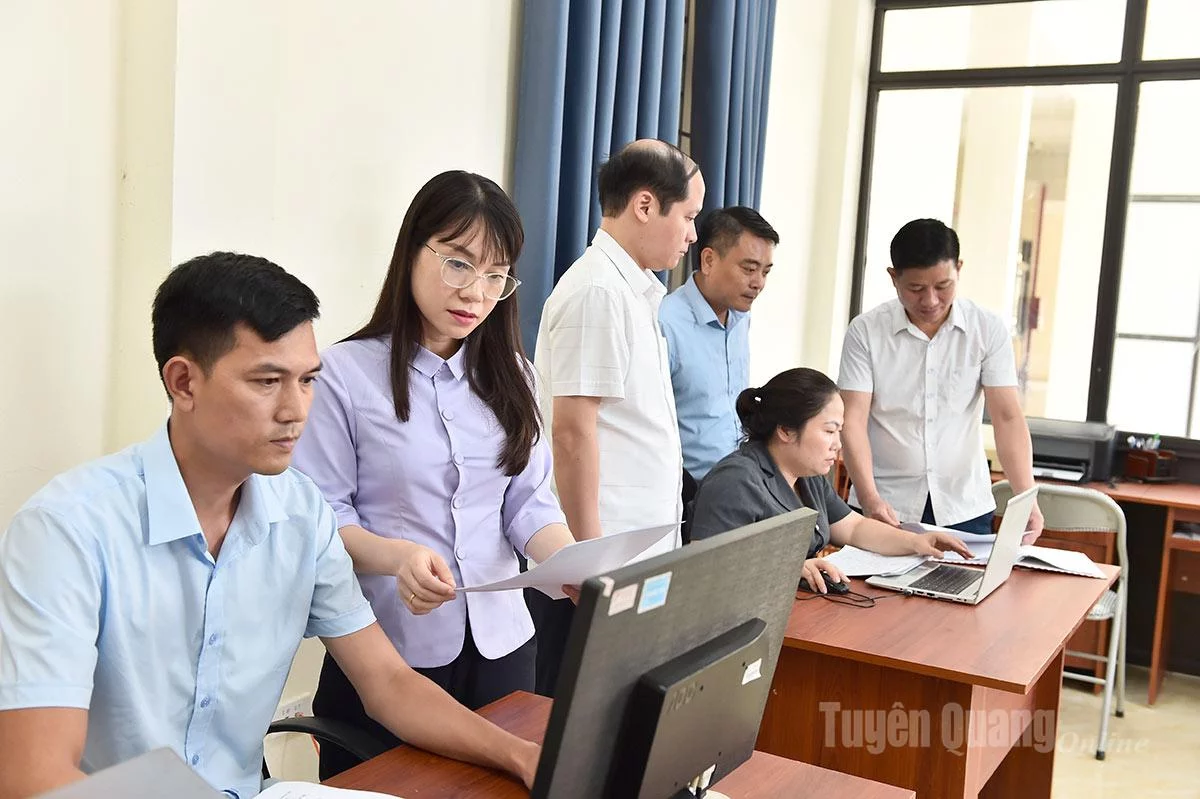 |
| Comrade Pham Thi Kieu Trang, Secretary of Binh Thuan Ward Party Committee, is directing the completion of documents. |
More decentralization, more responsibility
With the model of “large province, large commune”, Tuyen Quang currently has 124 communes and wards. The communes and wards are merged from 2 to 6 old communes and wards, with an area and population density that increases 3-5 times. The commune government has many new important tasks and responsibilities, and is assigned more authority, so the responsibility of each cadre must also be greater.
Ms. Ha Thi Thu, village 6 Quy Quan, Luc Hanh commune, wants to change the land use purpose to residential land for housing. On the afternoon of July 6, Ms. Thi brought her documents to the Luc Hanh Commune Public Administration Service Center to apply for a Land Use Rights Certificate. Ms. Thi is one of the people who have experienced this convenience. When she came to do the procedures at the Center, she was enthusiastically guided by the staff here. "After only 20 minutes, all of her documents were received and she had an appointment letter. It was really fast and convenient, just as she expected," Ms. Thu shared.
The two-tier government model is bringing local government closer to the people. This change not only brings convenience to the people but also places higher demands on local officials.
Having worked for many years as the Chief of the Lam Binh District Party Committee Office after the merger, Mr. Truong Van Quang was transferred and appointed as Chairman of the Lam Binh Commune People's Committee. Comrade Truong Van Quang shared: "Lam Binh Commune was merged with Xuan Lap Commune, Phuc Yen Commune and Lang Can Town, with a fairly large area of 327.65 km2; population: 6,999 people.
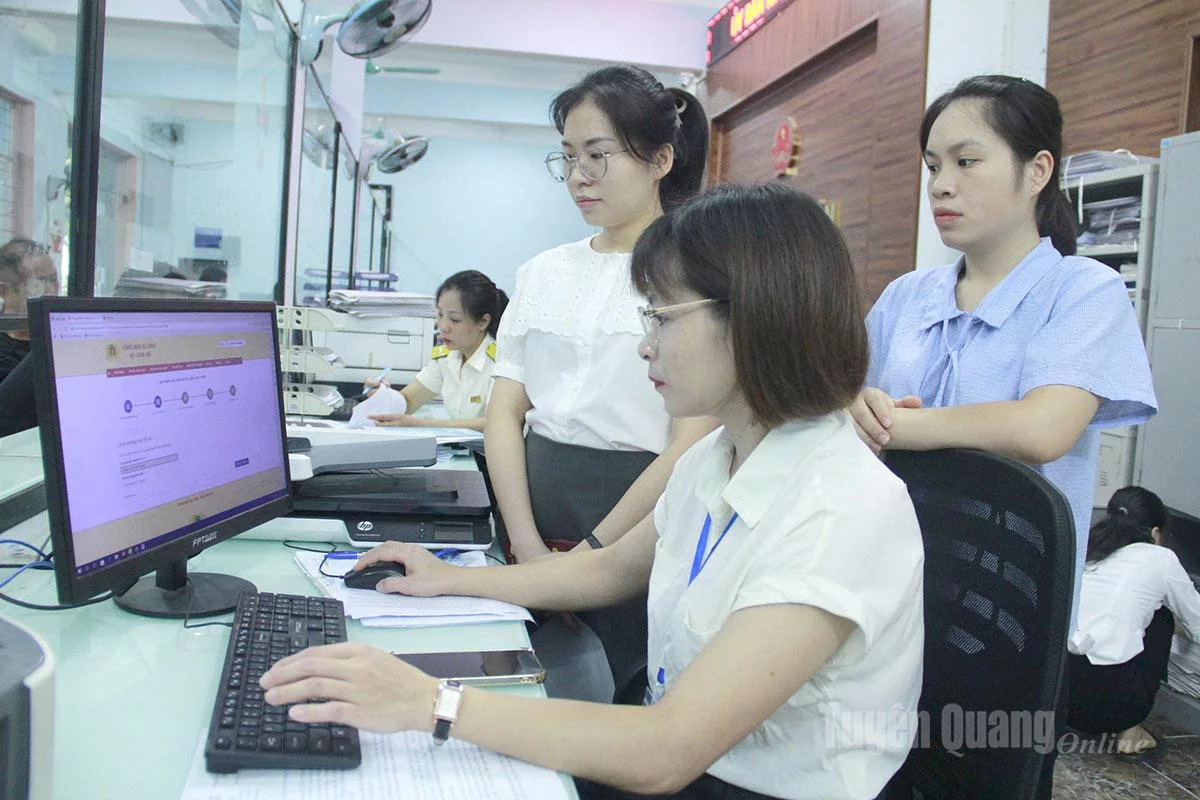 |
| Officials and civil servants of Ha Giang 2 ward exchange expertise and professional skills. |
The areas under the authority of the new commune-level People's Committee are currently numerous and very new, including quite sensitive areas such as land management, minerals, and construction. Therefore, when assigned a new task, I had to carefully study the legal regulations on these areas, especially not allowing lax management, leading to violations."
In addition, the role of the People's Council at the commune level has also been significantly enhanced. Comrade Then Van Quan, Chairman of the People's Council of Dong Tam commune, shared that the People's Council of the commune now decides on most important issues of the locality. From building and approving socio-economic development plans, deciding on budget estimates, allocating and approving budget settlements, approving policies to support agriculture, environmental protection, care for education, health care, culture, to decisions on local security and defense. More power, greater responsibility, requiring cadres to quickly adapt and make professional efforts to complete their tasks.
The "knots" that need to be untied
After two weeks of operation, many commune-level cadres clearly felt the pressure of taking on a large number of new tasks. This required commune cadres to both work and study new regulations, decrees, and circulars that were continuously issued.
Ms. Pham Thi Nguyet, a specialist at the Ha Giang 2 Ward Public Administration Service Center, shared: “There are many new documents, we have to spend time outside of work hours to read and understand. This sometimes makes the work process not as smooth as expected. We always strive to complete the work, ensuring the quick reception and payment of documents and administrative procedures for people and businesses.”
Talking about the initial difficulties, Ms. Hoang Thi Thuy, an expert of the Fatherland Front Committee of Luc Hanh commune, shared: “There are quite a few new regulations, decrees, and circulars that have been issued. We have to research and learn at the same time, so the initial operation is still difficult.” This is also the common opinion of many officials in the communes when approaching the new government model.
The digital transformation journey, although an inevitable trend, is also facing many "bottlenecks" when carrying out administrative procedures on the National Public Service Portal. Many procedures are still complicated, and items on the Public Service Portal are sometimes difficult to understand, causing people, especially the elderly, to still choose to submit their applications directly. Ms. Tran Thi Hoa, village 5 Quy Quan, Luc Hanh commune said: "I tried to submit my application online, but I found many items unclear. Commune officials had to guide many people at the same time, which was quite difficult."
In addition, the establishment of Community Digital Technology Teams in many places is still slow, leading to a lack of staff to guide people in using online public services. The weak digital skills of a number of commune officials is also a major barrier, preventing them from meeting the requirements of digital transformation.
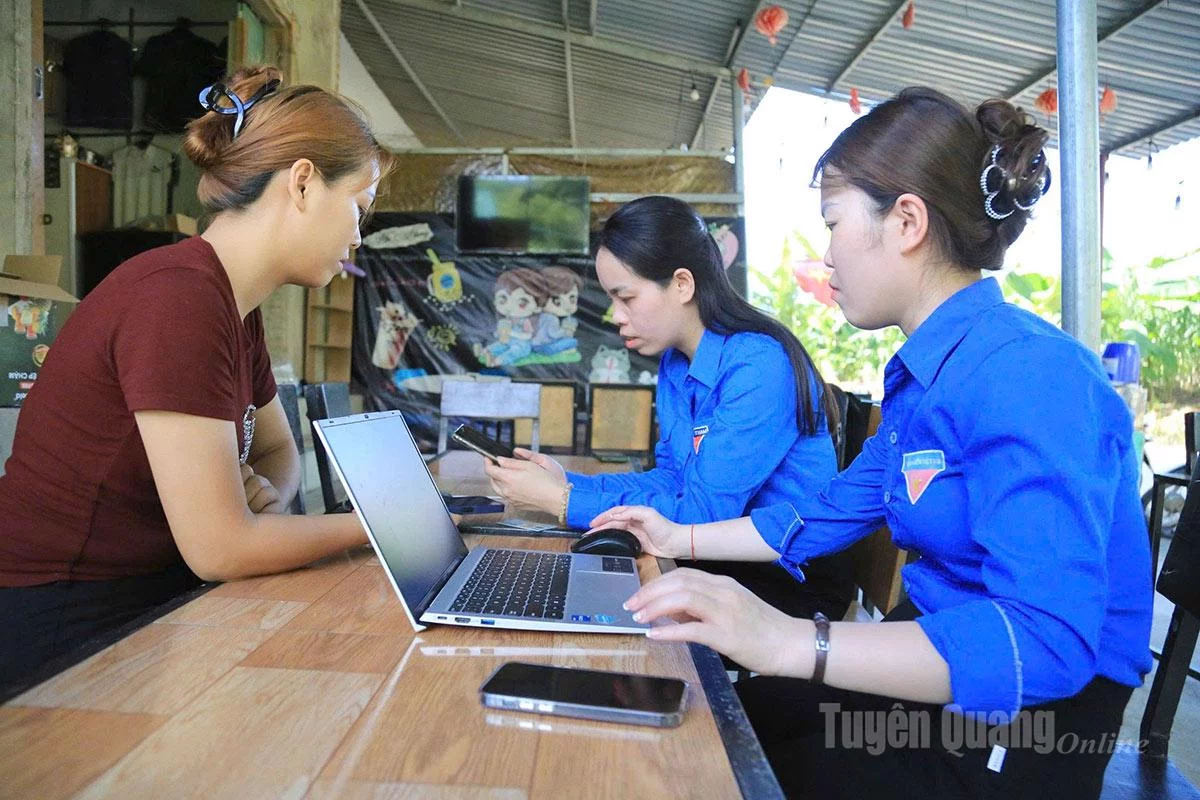 |
| Cadres of the Ho Chi Minh Communist Youth Union of Luc Hanh commune regularly go to the grassroots to guide people in digital transformation. |
Sharing about this issue, Ms. Luong Thu Hien, an officer of the Tan Trao Commune People's Committee Office, said: "Many officers still have difficulty using specialized software or operating on the Public Service Portal. Although they have been trained, they are still confused when applying it to daily work, affecting the processing speed and quality of online public services for people. Not to mention the problem that some people have not registered and activated level 2 electronic identification, making the process of handling documents difficult."
Another difficulty that exists is the lack of office space and facilities in many localities after the merger. A typical example is Hung Loi commune, which was merged from the old Hung Loi commune and Trung Minh commune. Currently, the office space is located in Hung Loi with more than 60 staff, leading to overload and lack of working space. Similarly, Son Vi commune is also facing similar challenges. The main reason is that the geographical distance between the old commune offices is too far, making it impossible to effectively utilize the existing facilities, causing difficulties in arranging work and living space for staff.
Officials must improve themselves.
These days, Ms. Hoang Thi Thuy, a specialist of the Fatherland Front Committee of Luc Hanh commune, is quite busy with her workload. Along with performing assigned tasks at the office, she proactively spends time researching documents and participating in online courses on AI and digital transformation to better serve her work.
Ms. Thuy shared: “I used to be the Secretary of the Youth Union of Quy Quan commune. Currently, I am a specialist in charge of the work of the Ho Chi Minh Communist Youth Union of Luc Hanh commune. Luc Hanh merged from 3 communes: Quy Quan, Luc Hanh, Chieu Yen. The Youth Union work in the commune currently has 2 officers in charge, the workload is larger, the responsibility is greater, so I have to learn by myself to meet the job requirements.”
In a rapidly changing context, self-study, self-research, and self-improvement of expertise are mandatory. Recently, Mr. Liu Van Thang, an officer of the Pa Vay Su Commune People's Committee Office, has spent a lot of time studying new regulations on commune-level financial management. He affirmed: “We cannot wait for training courses. Everyone must proactively learn and acquire new knowledge to meet job requirements. This change requires each officer to be a “role model” in learning spirit.”
Along with self-effort, organizing training courses to improve the capacity of cadres is extremely necessary. Comrade Do Anh Tuan, Director of the Department of Home Affairs said: “We are developing a detailed training plan, closely following the practical needs of each group of cadres. These courses will help cadres update their knowledge, improve their professional skills, and solve problems that arise during their work.”
To solve the “bottleneck” in digital transformation, strengthening the Digital Technology Team in the community is an urgent task. Team members need to be thoroughly trained to have enough capacity to guide people to perform online public services easily and conveniently. Comrade Ma Cong Kham, Chairman of the People's Committee of Thuong Lam Commune, said: “We have required each cadre to master basic digital skills. This is an inevitable trend and a mandatory requirement to serve people in the digital age.”
Currently, many localities across the country such as Phu Tho, Ninh Binh, or Ho Chi Minh City have proactively adjusted administrative working hours for cadres, civil servants, public employees and workers to better suit practical conditions. Compared to the current working hours in Tuyen Quang, this adjustment will help cadres start the morning 30 minutes later and end the afternoon 30 minutes earlier.
Comrade Do Anh Tuan, Director of the Department of Home Affairs added: “Faced with practical difficulties in terms of travel distance and living arrangements of commune-level cadres after the merger, Tuyen Quang province is considering solutions to adjust administrative working hours, learning from experiences from other localities. This is considered a flexible change, which can create more favorable conditions for cadres, improving overall working efficiency.”
The transformation of the two-level government model in Tuyen Quang is a step forward with many expectations for a streamlined, efficient and more people-friendly administration. Although the road ahead is full of difficulties and challenges, this is also a strong motivation for each cadre to be self-aware and strive to improve their own capacity. Each truly “good” cadre in the “big commune” will contribute to building a strong and modern grassroots government.
Giang Lam
Source: https://baotuyenquang.com.vn/thoi-su-chinh-tri/tin-tuc/202507/xa-lon-trach-nhiem-lon-1d922d4/


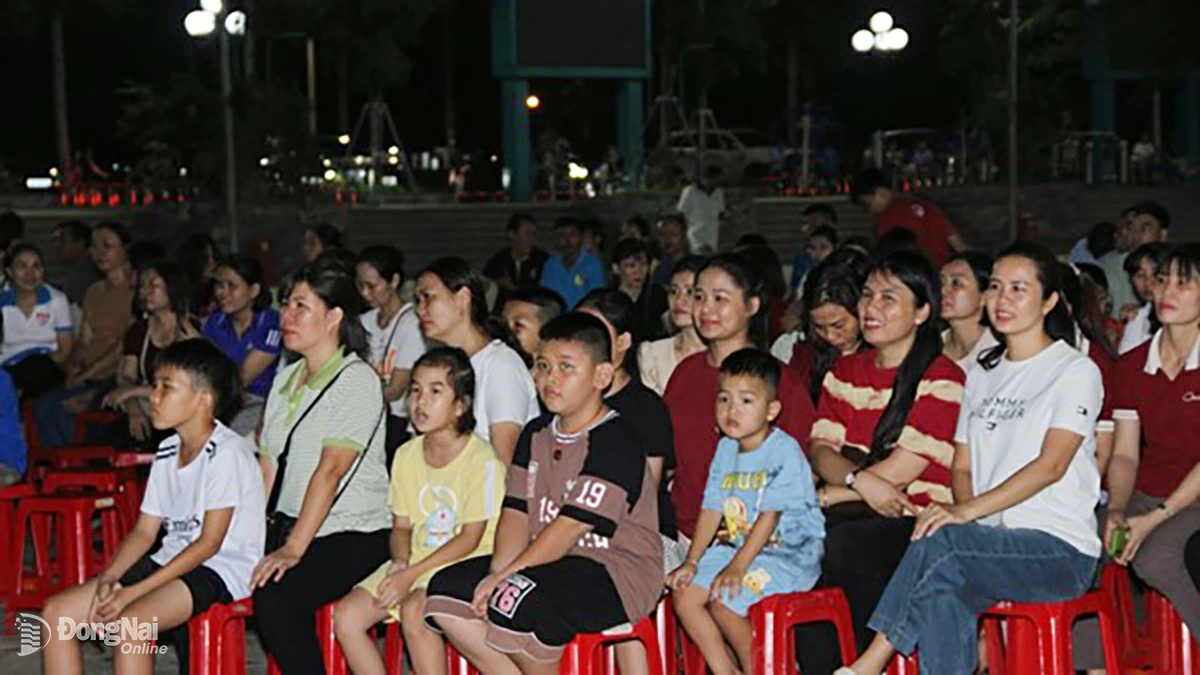

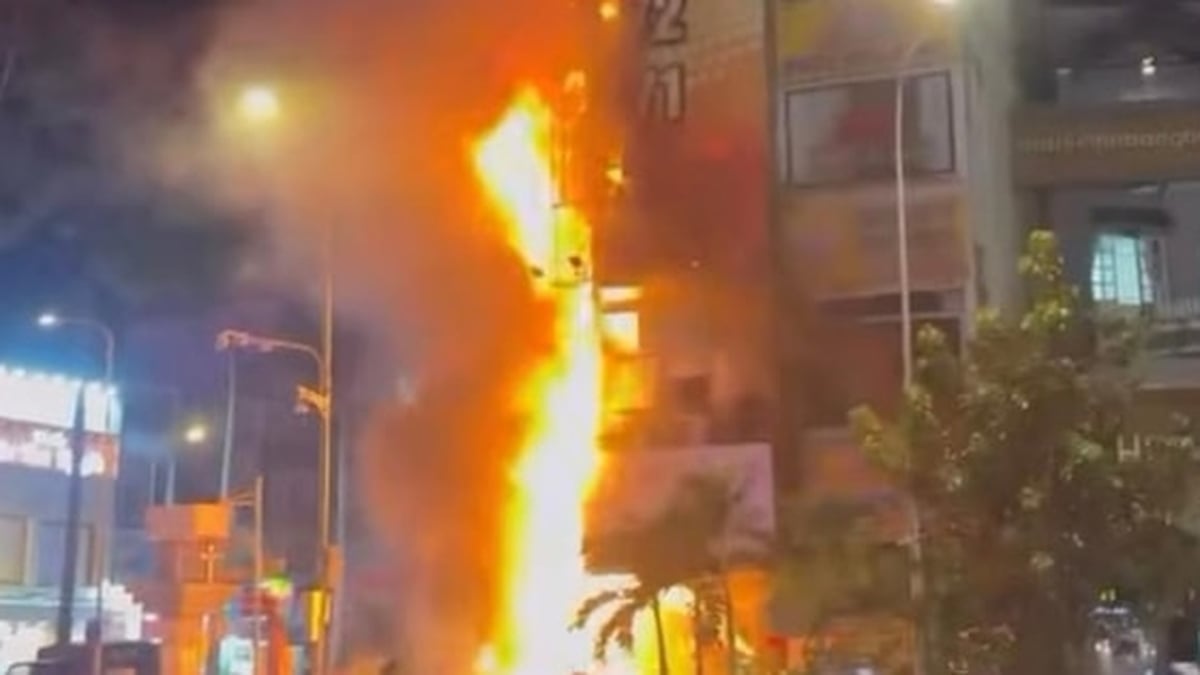
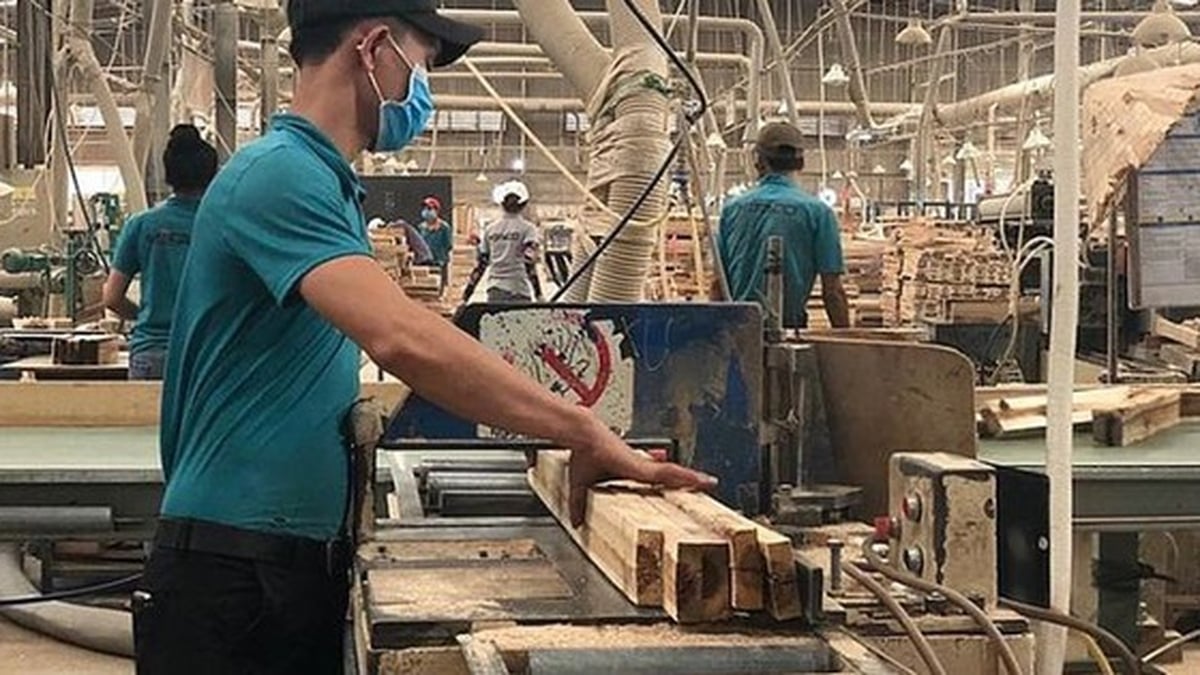

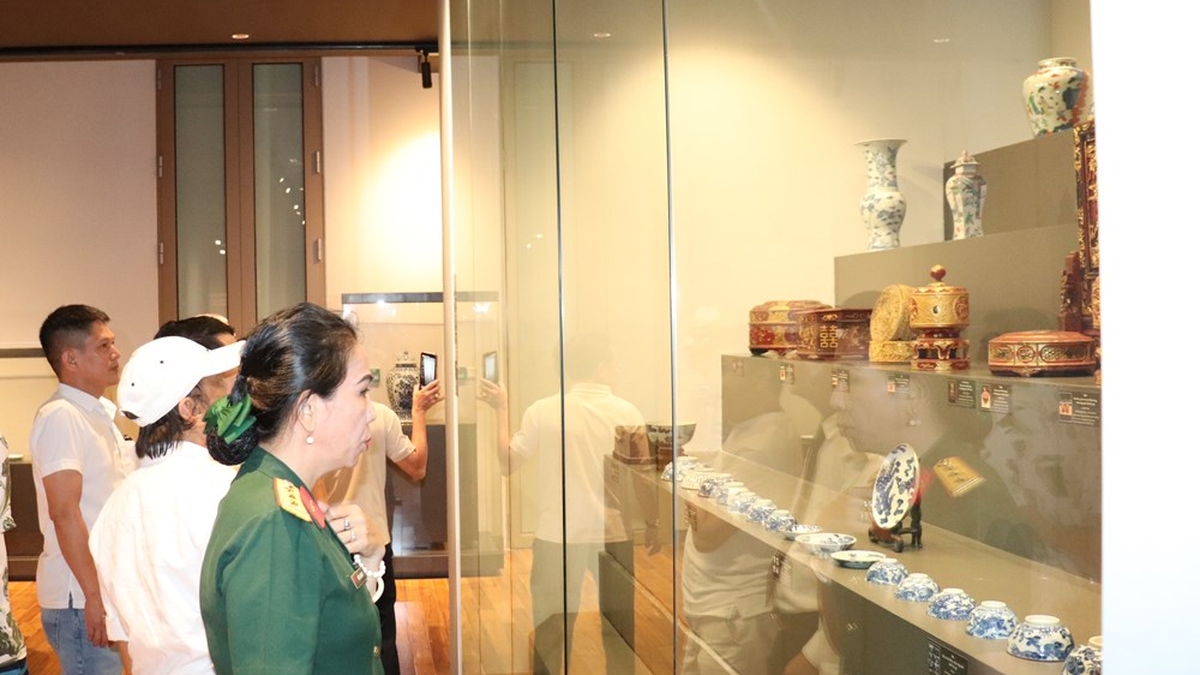
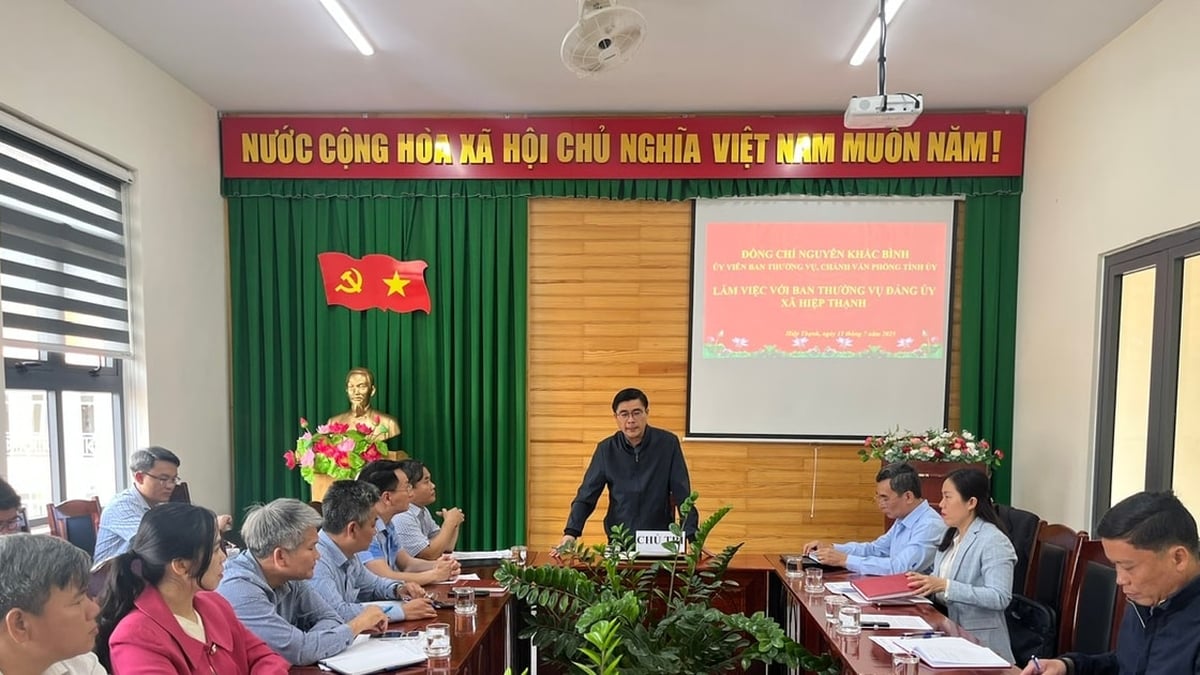
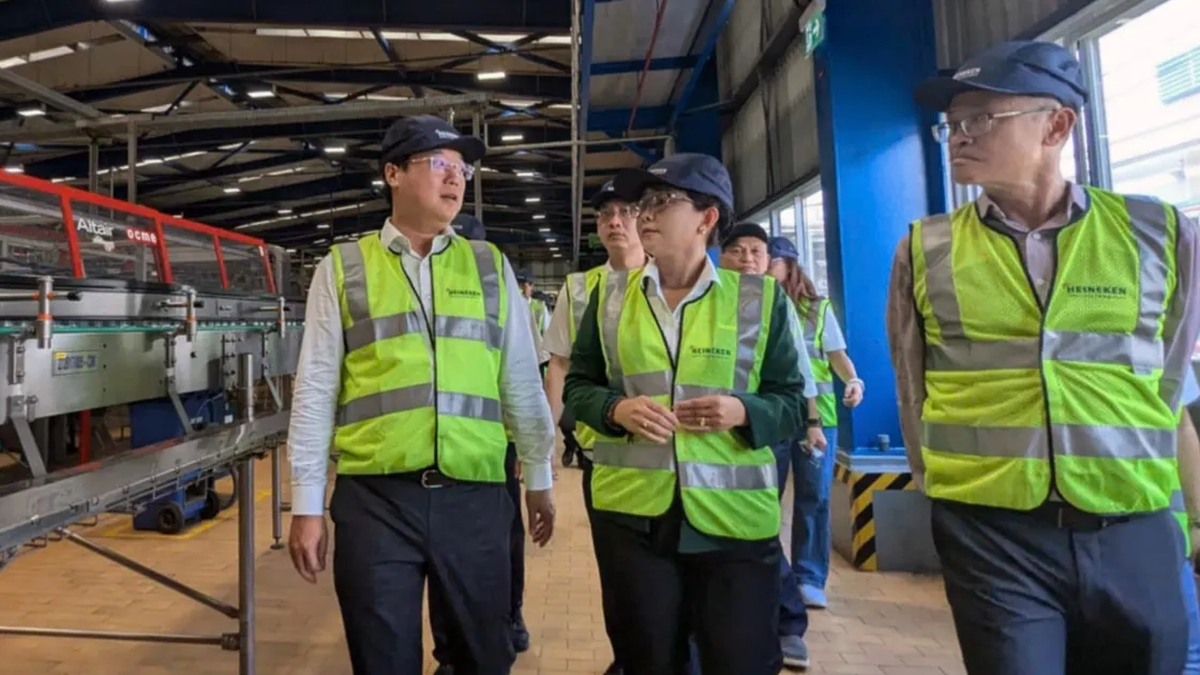
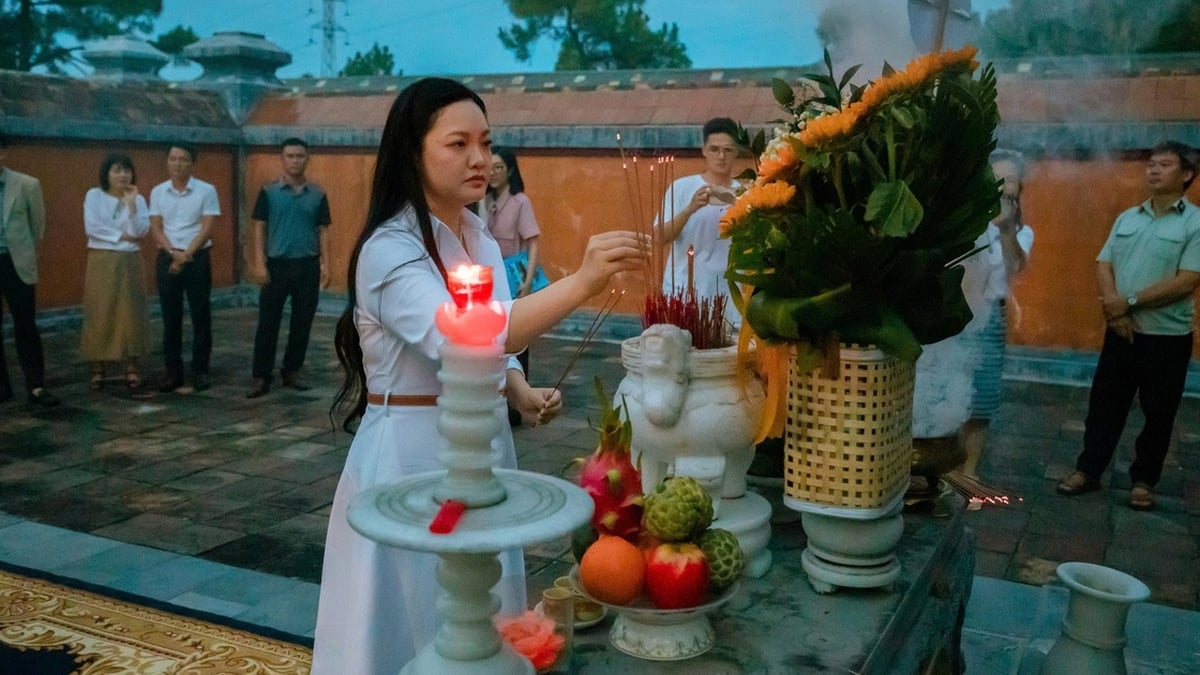
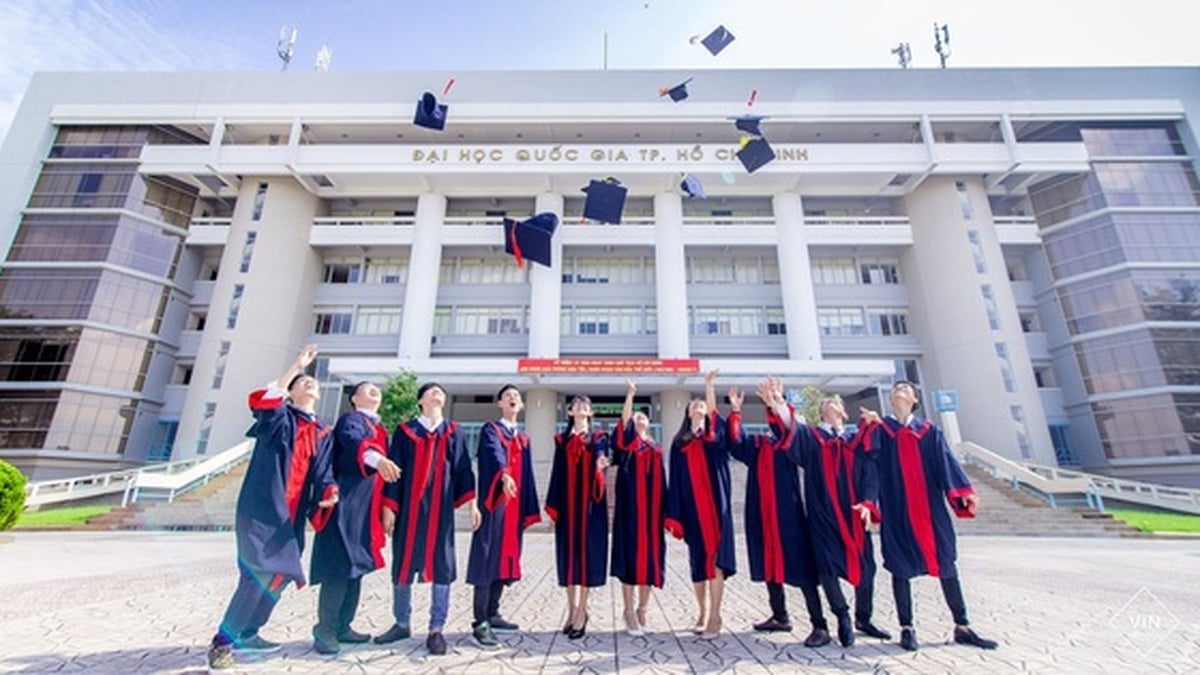











![[Photo] Gia Lai provincial leaders offer flowers at Uncle Ho's Monument with the ethnic groups of the Central Highlands](https://vphoto.vietnam.vn/thumb/1200x675/vietnam/resource/IMAGE/2025/7/9/196438801da24b3cb6158d0501984818)








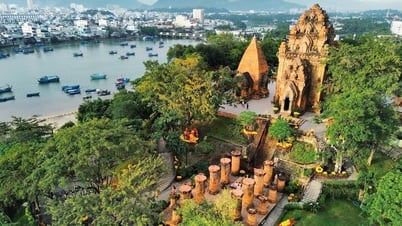



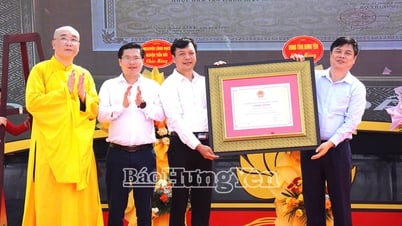



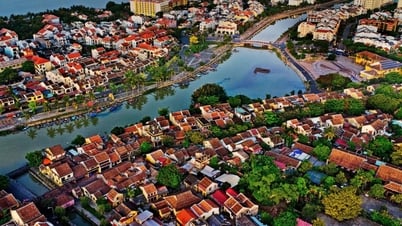



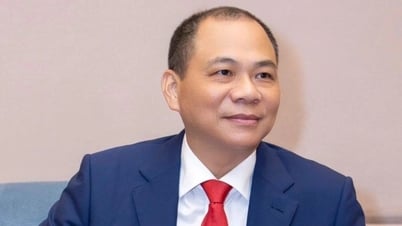

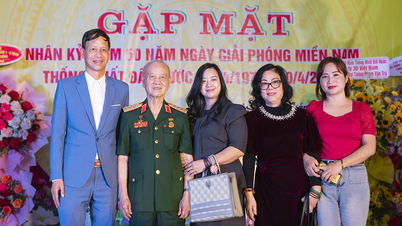

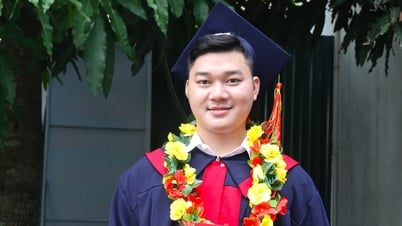


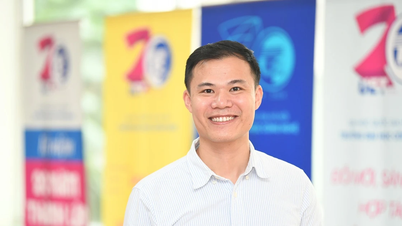

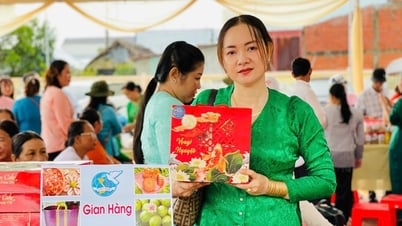





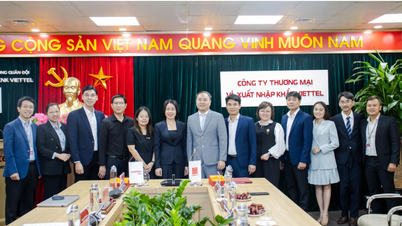
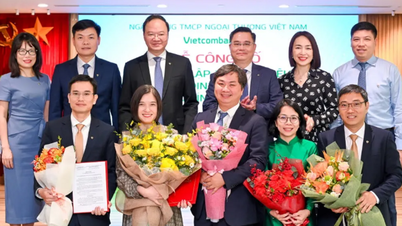

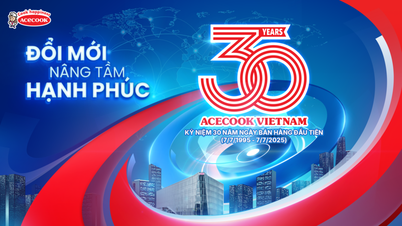



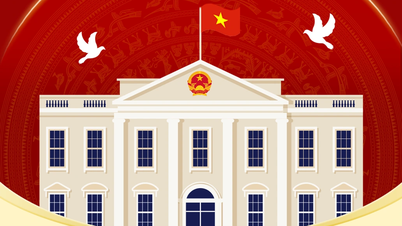

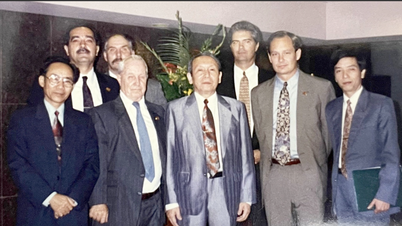


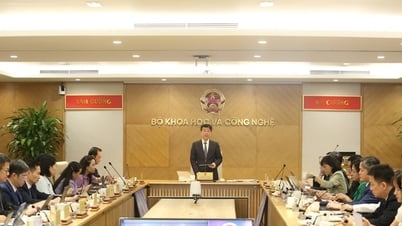

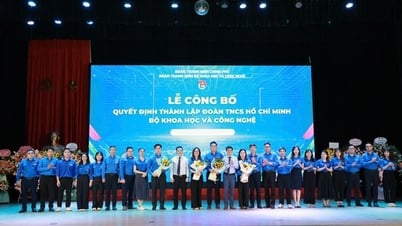


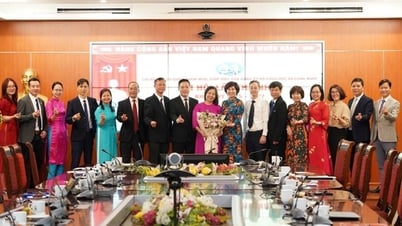
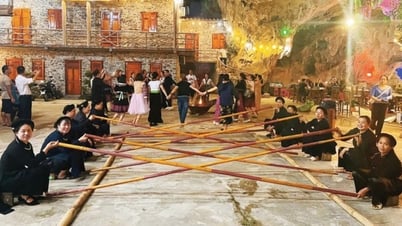

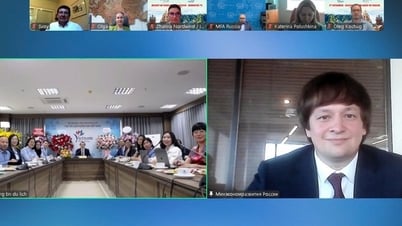











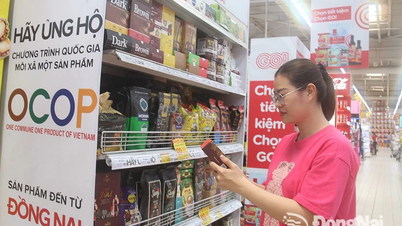



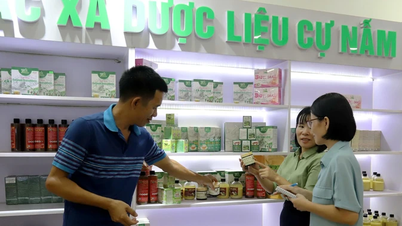





Comment (0)